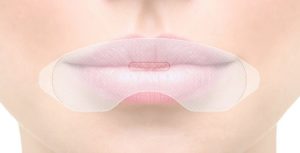When you buy through our links, we may earn a commission. Products or services may be offered by an affiliated entity. Learn more.
Is Sleeping With Your Mouth Open Bad?
- Mouth breathing can affect sleep quality and contribute to snoring.
- Most treatments address nasal congestion, the most common cause of mouth breathing.
- Mouth breathing due to anatomy may be a sign of obstructive sleep apnea. Speak to your doctor about other symptoms.
Chronic mouth breathing at night may cause bothersome symptoms or lead to health complications. While most people breathe through their nose during sleep, people may sleep with their mouths open for a variety of reasons. Sleeping with the mouth open may be a temporary response to nasal congestion, a learned habit, or a symptom of an underlying health condition.
Risks of Sleeping With Your Mouth Open
Occasionally sleeping with the mouth open, such as during a common cold, may not lead to significant health issues. However, chronic mouth breathing may cause several complications.
Chronic dry mouth due to sleeping with the mouth open can cause dental and other health complications. People with chronic dry mouth have higher risks of cavities , gum disease, and loss of tooth enamel.
Because saliva is important to keep the mouth clean and healthy, people with dry mouth can get frequent yeast infections inside the mouth. People with severe dry mouth may also have difficulty speaking and eating.
Some studies have noted changes to the face and mouth over time in children who chronically breathe through their mouths, particularly in children with swollen adenoids. However, research into the link between mouth breathing and these facial features has found inconsistent results.
Is Your Snoring a Health Risk?
Answer three questions to understand if you should be concerned.
Signs of Sleeping With Your Mouth Open
Chronic mouth breathing can cause dry mouth, particularly in dry climates. Dry mouth that occurs at night or upon waking may be a sign of sleeping with the mouth open.
Saliva is important for oral health. It keeps the gums and tongue moist, the teeth healthy, dissolves food, and is important for swallowing. Dry mouth at night can cause bad breath and cracked lips. Long-standing dry mouth may lead to tooth decay and difficulty eating.
In addition to dry mouth, sleeping with the mouth open has been linked to sore throats and runny noses. People who use positive airway pressure (PAP) therapy for sleep apnea and who sleep with their mouths open may experience air leaks that could reduce the effectiveness of PAP treatment.
What Causes Mouth Breathing at Night?
People may sleep with their mouths open because it is a habit, but mouth breathing at night may also be a sign that something is interfering with normal breathing, particularly if it is accompanied by snoring.
Nasal congestion or blockage is a common cause of mouth breathing. This may be temporary congestion from a common cold or chronic congestion due to asthma or allergies. Young children occasionally stick objects into their nostrils, which may block nasal passages on one or both sides. Large growths in the lining of the nose, called polyps, can also impede breathing through the nose and may result in mouth breathing.
Mouth breathing may be a sign of obstructive sleep apnea (OSA). In children, a common cause of OSA is swollen adenoids, which are glands located in the back of the nose and throat. Many children with swollen adenoids sleep with their mouths open due to difficulty breathing through their noses.
Occasionally, changes to the anatomy of the nose and mouth may cause mouth breathing. A deviated septum of the nose , which describes a bent or crooked wall dividing the two nostrils, can block one nostril and may lead to mouth breathing and snoring. Misaligned teeth can also cause mouth breathing if a person has difficulty fully closing the mouth.
Do Babies Sleep With Their Mouths Open?
Newborn babies tend to breathe through their noses. For this reason, a newborn baby sleeping with their mouth open may be a sign that their nose is blocked or that the septum of their nose was injured during childbirth.
If a child who used to breathe through their nose at night begins to breathe through their mouth, this may be a sign of swollen adenoids . Adenoids usually grow throughout early childhood and reach their largest size in children aged 2 to 6 years.

How to Stop Sleeping With Your Mouth Open
In many cases, the best way to stop sleeping with the mouth open is to find and treat the cause. For example, humidifiers or nasal saline sprays may help reduce nasal congestion contributing to mouth breathing. Mouth breathing due to allergies, asthma, or sinus infection may improve after treatment of these conditions.
Mouth Taping
Some experts recommend mouth taping to encourage breathing through the nose and to stop snoring. Mouth taping involves taping the mouth shut or covering it with a soft patch at night.
Very few studies of mouth taping have been done, but one small study found that participants reported less daytime sleepiness, less snoring, and fewer breathing disruptions while sleeping with a soft patch over their mouths.
The Best Mouth Taping Solutions
Nasal Strips
Nasal strips are another option for those who may need help breathing through their nose at night. Nasal strips are adhesive strips that stick to the bridge of the nose and use springs to pull the nostrils outward.
Some studies have found that these strips reduce nasal congestion and improve sleep quality. However, research findings have been inconsistent. Other studies have found that nasal strips did not improve nasal congestion, sleep quality, nor sleep-disrupted breathing.
Sleep Position
Adjustments to the sleep position may help open the nasal airway and therefore reduce mouth breathing. Sleeping upright or on the side may open airways for some people with OSA.
Supportive pillows, specialized backpacks, body position sensors with alarms, or tennis balls attached to the back may help people who otherwise have difficulty sleeping on their sides or upright.
Surgery
Some people with severe complications from chronic mouth breathing may need surgery to address their health conditions. Large nasal polyps that block the airway need to be surgically removed. While most children do not need treatment for swollen adenoids, some physicians may recommend having them removed if they cause severe symptoms.
When to Talk to a Doctor
Parents or caregivers who notice a newborn baby sleeping with their mouth open should talk to a doctor as soon as possible, because the baby may have serious breathing difficulties.
In addition, parents or caregivers should talk to a doctor if a child begins mouth breathing and snoring, particularly if the child has headaches in the morning, difficulty concentrating, or starts wetting the bed after not having done so before. These may be signs of obstructive sleep apnea.
Parents or caregivers of a child with swollen adenoids should talk to their children’s doctors if they notice changes in the shape of their child’s face or if their child has difficulty closing their mouth.
People with severe symptoms of dry mouth, such as difficulty swallowing, difficulty speaking, mouth pain, cavities, or gum disease, should talk to a doctor or dentist about treatment options.

Still have questions? Ask our community!
Join our Sleep Care Community — a trusted hub of sleep health professionals, product specialists, and people just like you. Whether you need expert sleep advice for your insomnia or you’re searching for the perfect mattress, we’ve got you covered. Get personalized guidance from the experts who know sleep best.
References
5 Sources
-
Tahla, B., & Swankar, S. A. (2022, October 27). Xerostomia. In StatPearls. StatPearls Publishing., Retrieved April 17, 2023, from
https://www.ncbi.nlm.nih.gov/books/NBK545287/ -
Burgess, J. (2020, December 22). Salivary abnormalities in dentistry. Medscape., Retrieved April 17, 2023, from
https://emedicine.medscape.com/article/2091828-overview -
Nowak, A. J., & Warren, J. J. (2022, November 14). Oral habits and orofacial development in children. In A. Griffen (Ed.). UpToDate., Retrieved April 17, 2023, from
https://www.uptodate.com/contents/oral-habits-and-orofacial-development-in-children -
Shetty, S. R., Al Bayatti, S. W., Al-Rawi, N. H., Kamath, V., Reddy, S., Narasimhan, S., Al Kawas, S., Madi, M., Achalli, S., & Bhat, S. (2021). The effect of concha bullosa and nasal septal deviation on palatal dimensions: a cone beam computed tomography study. BMC Oral Health, 21(1), 607.
https://pubmed.ncbi.nlm.nih.gov/34814910/ -
A.D.A.M. Medical Encyclopedia. (2021, August 8). Enlarged adenoids. MedlinePlus., Retrieved April 17, 2023, from
https://medlineplus.gov/ency/article/001649.htm












